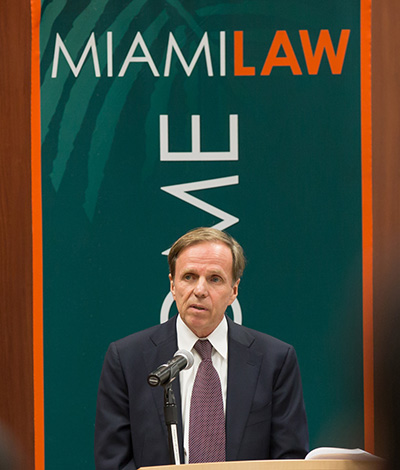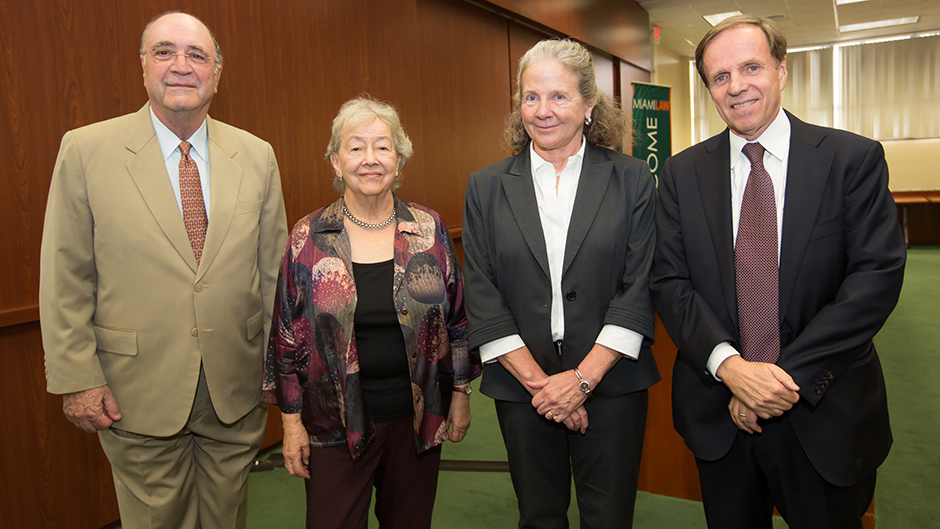Written by: JESSICA SBLENDORIO
Michael H. Posner visited Miami Law last week to deliver a powerful address about the growing importance of the connection between business and human rights at the 4th annual Louis Henkin Lecture on Human Rights.
During the lecture, titled “Examining Human Rights and Global Business—A New Frontier,” Posner emphasized how over the last two decades companies have grown exponentially, forcing private companies to adjust to a much larger role in the human rights arena than they have ever played previously.

Professor Posner’s career has been dedicated to human rights, and his personal relationship with Louis Henkin provides an extraordinary perspective on these issues. Early in his career in 1978, Posner founded Human Rights First, a New York-based human rights advocacy organization and led the organization until 2009. During the mid-1990s, Posner served as a member of the White House Apparel Industry Partnership Task Force where he helped found the Fair Labor Association. From 2009 to 2013, Posner served as the Assistant Secretary of State for the Bureau of Democracy, Human Rights, and Labor at the State Department. He is currently a professor at NYU’s Stern School of Business, where he is working to launch the first-ever center on business and human rights at a business school.
Posner began his lecture by highlighting the growth of global companies and how companies have some of the largest economies in the world. Posner emphasized that “the field of business and human rights is different from corporate responsibility.” Tackling business and human rights is more difficult because it requires companies take a hard look at their core operations.
After World War II, the drafters of the Universal Declaration of Human Rights rejected the notion that governments bestow rights on individuals—every person is entitled to rights by virtue of his or her humanity and the primary duty is on states to respect human rights. In considering the role of business in today’s globalized economy, Posner said companies have a responsibility to protect and respect human rights in that state where those global companies operate. In support of his position, Posner cited the Human Rights Council’s Guiding Principles on Business and Human Rights. Posner stated that these principles create a theoretical framework, but companies need further guidance on how to use these principles in practice, and he discussed several examples of different industries, including natural resources extraction, manufacturing, information and communications, agriculture, and the financial sector.
In thinking about how companies and their respective leaders can create best practices for business and human rights, Posner gave three broad principles. First, companies need to confront human rights issues by having senior leadership in the company develop commitments on human rights. Second, by putting these principles into practice require companies need to align their organizational structures and procedures to create incentives for respecting human rights within routine business operations. Lastly, companies must be willing to engage with others and use other companies in this process.
“Business and human rights issues are becoming more visible,” said Posner. “Especially as consumers, it is up to each of us to apply our concerns about human rights to our daily lives.”

